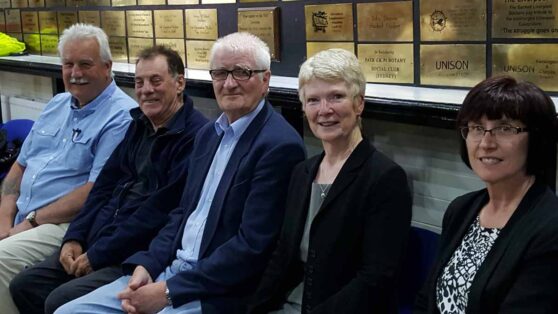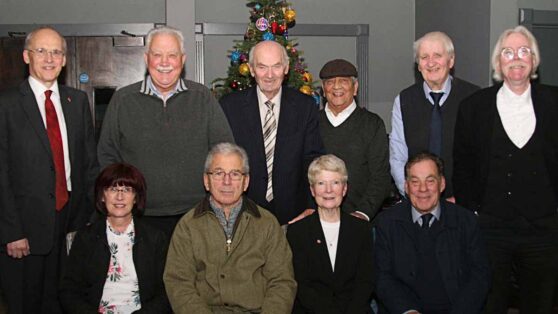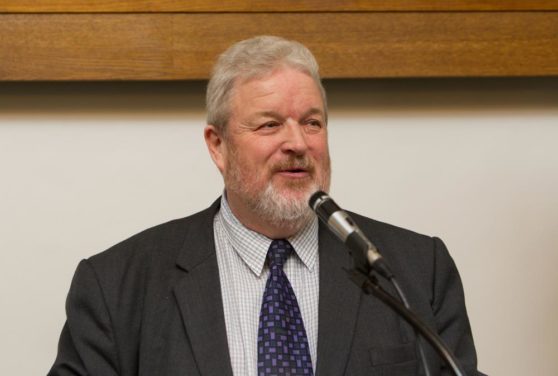The Campaign began in 2006 following the premature death of the leading picket, Des Warren, two years earlier. The aim of the campaign was to quash all the convictions of the Shrewsbury pickets and overturn this historical miscarriage of justice.

Our main focus was to submit applications on behalf of the pickets to the Criminal Cases Review Commission and for them in turn to refer the pickets’ case to the Court of Appeal. To do so we needed fresh evidence, which our researcher Eileen Turnbull, discovered after many years of investigation. The pickets’ applications were lodged with the CCRC on 3 April 2012. After five years considering the applications and several submissions of further evidence from the campaign, the CCRC finally rejected them in October 2017.
The campaign worked hard and raised funds from the trade unions and labour movement to support the pickets’ challenge to the CCRC’s decision through a Judicial Review (JR). Eight of the original ten pickets backed the JR, two having dropped out. On the 30 April 2019 in the Administrative Court in Birmingham, the pickets won at the JR hearing and the CCRC were ordered to reconsider the case.

Back Row (L-R) Mark Turnbull, Terry Renshaw, Kevin Butcher, Michael Pierce, John Bohanna and Joe Sim. Front row: Ann Dobie, John McKinsie Jones, Eileen Turnbull and Harry Chadwick.
On 4 March 2020 the CCRC issued a new decision and referred the eight pickets’ convictions to the appeal court in London. It had taken the CCRC eight years to accept that the fresh evidence we had submitted was credible. The families of four further pickets approached the campaign and we submitted applications to the CCRC on behalf of their relatives. The CCRC promptly referred those additional cases to the appeal court. The campaign was now acting for 12 convicted pickets.
The Court of Appeal heard the case on 2 and 3 February 2021, midway through the pandemic. On the 23 March 2021 the three judges handed down their unanimous decision, to quash all the convictions of the Shrewsbury pickets.
Raising the Campaign’s profile
Successive governments had refused to release documents about the pickets’ case. The Campaign publicised this at press conferences in Portcullis House, London, in 2012 and 2013 attended by MPs, trade union general secretaries and the media. The latter event also featured the handing in of a petition to Downing Street calling on the government to release all the documents. This was followed by a debate in the House of Commons on Thursday 23rd January 2014 led by David Anderson MP (see the video here). We owe him a great debt.

A further parliamentary debate took place in Westminster Hall, led by Andy Burnham MP, on 9 December 2015 (see the video here). He made a spectacular speech in which he declared that the Government’s continued refusal to disclose documents was politically-driven to avoid embarrassment rather than any threat to so-called national security.
Fundraising–legal costs
We did not ask any of the pickets to contribute to the cost of instructing lawyers who would deal with the legal formalities of the application to the CCRC and subsequent court cases. Instead, we raised funds by presenting the pickets’ case to national trade unions at their executive committees and conferences and from annual affiliation fees from trade union branches, trades councils and CLP’s. We produced and sold a variety of merchandise through the website and at union events.